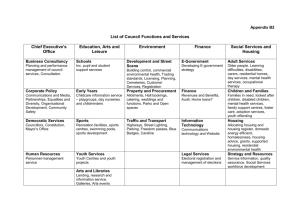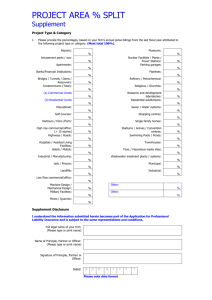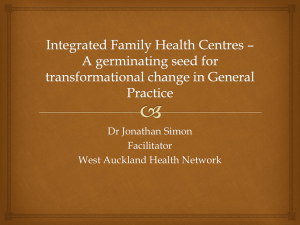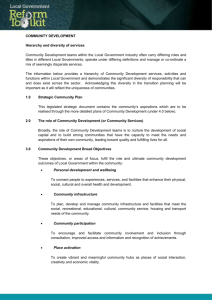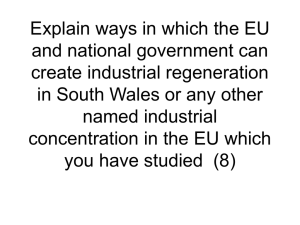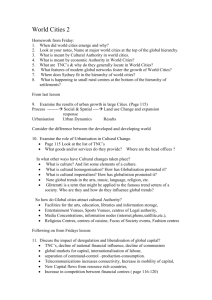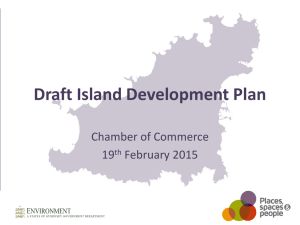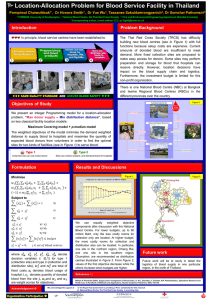Community centres as assets for social regeneration and health
advertisement
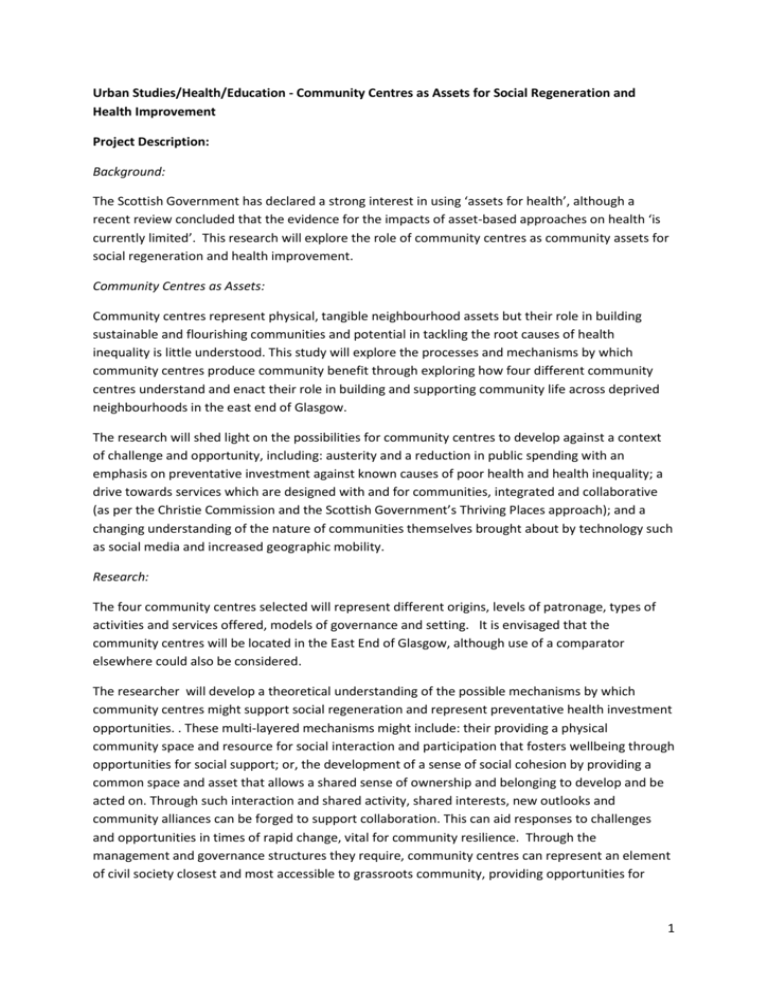
Urban Studies/Health/Education - Community Centres as Assets for Social Regeneration and Health Improvement Project Description: Background: The Scottish Government has declared a strong interest in using ‘assets for health’, although a recent review concluded that the evidence for the impacts of asset-based approaches on health ‘is currently limited’. This research will explore the role of community centres as community assets for social regeneration and health improvement. Community Centres as Assets: Community centres represent physical, tangible neighbourhood assets but their role in building sustainable and flourishing communities and potential in tackling the root causes of health inequality is little understood. This study will explore the processes and mechanisms by which community centres produce community benefit through exploring how four different community centres understand and enact their role in building and supporting community life across deprived neighbourhoods in the east end of Glasgow. The research will shed light on the possibilities for community centres to develop against a context of challenge and opportunity, including: austerity and a reduction in public spending with an emphasis on preventative investment against known causes of poor health and health inequality; a drive towards services which are designed with and for communities, integrated and collaborative (as per the Christie Commission and the Scottish Government’s Thriving Places approach); and a changing understanding of the nature of communities themselves brought about by technology such as social media and increased geographic mobility. Research: The four community centres selected will represent different origins, levels of patronage, types of activities and services offered, models of governance and setting. It is envisaged that the community centres will be located in the East End of Glasgow, although use of a comparator elsewhere could also be considered. The researcher will develop a theoretical understanding of the possible mechanisms by which community centres might support social regeneration and represent preventative health investment opportunities. . These multi-layered mechanisms might include: their providing a physical community space and resource for social interaction and participation that fosters wellbeing through opportunities for social support; or, the development of a sense of social cohesion by providing a common space and asset that allows a shared sense of ownership and belonging to develop and be acted on. Through such interaction and shared activity, shared interests, new outlooks and community alliances can be forged to support collaboration. This can aid responses to challenges and opportunities in times of rapid change, vital for community resilience. Through the management and governance structures they require, community centres can represent an element of civil society closest and most accessible to grassroots community, providing opportunities for 1 citizenship, capacity building and expertise in community governance, and the emergence of community leaders. The primary research will examine the documented history of the community centres and involve undertaking in-depth interviews (up to a dozen per centre) will a variety of interested parties including managers, users and non-users of the centres. It will describe the different understandings of community centres’ role in relation to the communities they serve, exploring how community centres may fulfil different functions in different nearby contexts. The work will also explore the perceptions and needs of those not currently using local community centres. This can help in supporting the future development of community centres, against a changing landscape of need and expectation in relation to social participation. The findings will be used to reflect upon the theoretical ideas developed earlier as to how community centres can function as assets for social regeneration and health improvement, and the role of contextual factors in this. Knowledge Exchange and Impact: It is envisaged that the research will be set up with communication channels to relevant areas of policy and practice, so that the research can inform and be informed by local and national policy considerations and community interests. The findings will contribute to our understanding of how, in what circumstances, through what pathways, and to what extent, physical buildings and collective entities can become community assets for health improvement, and inform policy development and expectations in this field. Scholarship Setting: The scholarship will be shared between three units of the University which have extensive experience of community-level research and a track record of both producing internationally rated, high-quality academic publications and of having impacts upon public policy and practice. Urban Studies at Glasgow was recently rated the number one academic unit in the UK for planning-related research. The Glasgow Centre for Population Health has led investigations of health inequalities in the city of Glasgow and played an active part in the development of national and local policies to tackle such inequalities. The School of Education allies staff experience of community work with a successful postgraduate programme in Community Development. All three academic units are already involved in research in the East End of Glasgow, including the evaluation of the legacy of the Glasgow Commonwealth Games 2014, with which the proposed research for the scholarship has a close fit. We envisage that the scholar will have a workspace alongside other staff at the University’s new social science hub at Bridgeton in the East End of Glasgow, thus enabling easy access to the study communities. Person Specification: Candidates should have: A good first degree in the social sciences (at least 2:1). An ability to critically engage with theoretical concepts and policy ideas. A high standard of written English and evidence thereof. An appreciation of the challenges of working in a community setting. 2 Good verbal communication skills and a pleasant conversational manner (for conducting indepth interviews with members of the public). Ability as a self-starter and to be able to resolve practical difficulties that may arise in fieldwork. A demonstrable interest in community development or community empowerment. A desire to inform public policy for health improvement. Desirable: A masters degree that included elements of research skill development is desirable but not essential. Application Details: Interested candidates may contact Dr Peter Seaman with any queries they may have, or for an informal discussion about the project in the first instance. This is an option, not a requirement. Applications should be made by email to Dr Peter Seaman (peter.seaman@glasgow.ac.uk) by 5.00 pm on 22nd January 2016. This should include the following: Covering letter explaining why you are interested in the scholarship, and how it fits into your career plans. Curriculum vitae. An example of your written work (word processed document). 3
